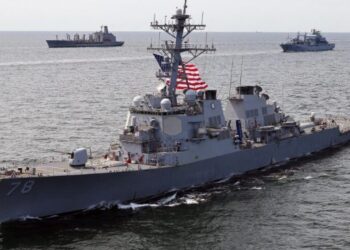Subject: Pentagon Bomb Assessment, Iran Nuclear Threat, Trump’s Strategic Calculus
Key Participants: Steve Bannon, Hugo Lowell (The Guardian), Jack Posobiec / WarRoom
Status: Ongoing Evaluation | CENTCOM Commander Retirement Imminent | Decision Window Narrowing
BLUF (Bottom Line Up Front):
President Donald Trump is under sustained pressure from military hawks and national security insiders to authorize a preemptive strike on Iran’s underground Fordow nuclear enrichment facility. A Pentagon assessment recently revealed that even the most powerful conventional U.S. weapons may be insufficient to destroy the site. Trump is resisting a rush to war, relying on intelligence briefings, historical lessons, and his diplomatic instincts as Commander-in-Chief. With CENTCOM Commander Gen. Michael Kurilla—nicknamed “The Gorilla”—set to retire in two weeks, internal pressures are escalating to act now. Trump is holding the line, emphasizing caution, leverage, and the possibility of negotiation over conflict.
Key Developments:
-
Pentagon Report Reveals Limits of Conventional Bombs
Hugo Lowell reported on a bomb damage assessment (BDA) that has alarmed Washington. The GBU-57 Massive Ordnance Penetrator, a 30,000-pound bunker-busting bomb, may not be capable of reaching and destroying Iran’s Fordow nuclear facility—buried more than 300 feet underground. Testing conducted by the Defense Threat Reduction Agency (DTRA) concluded that even multiple GBU-57 strikes may only delay, not eliminate, Iran’s nuclear capacity. -
Trump’s Reluctance Signals Strategic Restraint
Lowell, who covered Trump as a pool reporter, said the President was notably reserved in public when questioned about Iran, even during direct engagements. His body language and tone suggest a man wary of entering another Middle Eastern war. Bannon and Posobiec emphasized that Trump’s instincts are grounded in lessons from the Iraq War and his longstanding commitment to avoiding entanglements driven by the Washington foreign policy establishment. -
CENTCOM’s Shadow Over Washington
General Kurilla, CENTCOM Commander and leading voice for aggressive action against Iran, is retiring in two weeks. Bannon and Posobiec highlighted how CENTCOM operates as a power center in D.C., feeding a vast war economy—from think tanks to defense contractors. Kurilla’s looming departure adds urgency to the push for military action, and many believe the window to influence Trump is closing fast. -
Trump Weighs Options Amid Internal Division
The Pentagon itself is divided. Some senior officials advocate a restrained posture, while combatant commanders like Kurilla push for immediate strikes. Trump, known for favoring flexibility and deal-making, is not committing to action without understanding consequences. Bannon stressed that Trump wants to know: "Will a strike meaningfully degrade Iran’s capability—or just delay it?” -
Israel’s Independent Position and Media Pressure
Prime Minister Netanyahu recently stated that Israel can deal with Iran’s nuclear program independently. This development may reduce some pressure on Trump, but domestic influences—from Fox News to war-hungry think tanks—remain loud. Trump’s challenge is separating fact from noise while maintaining his strategic autonomy. -
Knowledge Cannot Be Bombed
Posobiec made a critical observation: Iran’s nuclear capabilities are not just physical but intellectual. Even if facilities are damaged, the scientific knowledge base remains. Without regime change, bombings may at best delay enrichment. Bannon pointed out that regime change is a much larger commitment—one Trump is unlikely to embrace.
Assessment:
Trump is facing a high-stakes decision under immense time pressure and institutional lobbying. Despite the chorus urging swift action, he is demonstrating measured restraint. The deeper issue is not just Iran’s facility, but whether the U.S. is once again being dragged toward a war by entrenched interests. Trump’s focus remains on leverage, not escalation.
Outlook:
Expect continued internal briefings, diplomatic feelers toward Iran, and further media speculation. Kurilla’s retirement may act as a pressure-release valve or escalate final lobbying efforts. Trump’s posture indicates no imminent strike but a clear readiness to act if provoked or if diplomacy fails. A decision is likely by early July.
For more context, watch these segments:



![Bannon’s WarRoom, Show Clip Roundup 11/7/2024 [AM]](https://warroom.org/wp-content/uploads/2024/11/WarRoom-Logo-75x75.jpg)